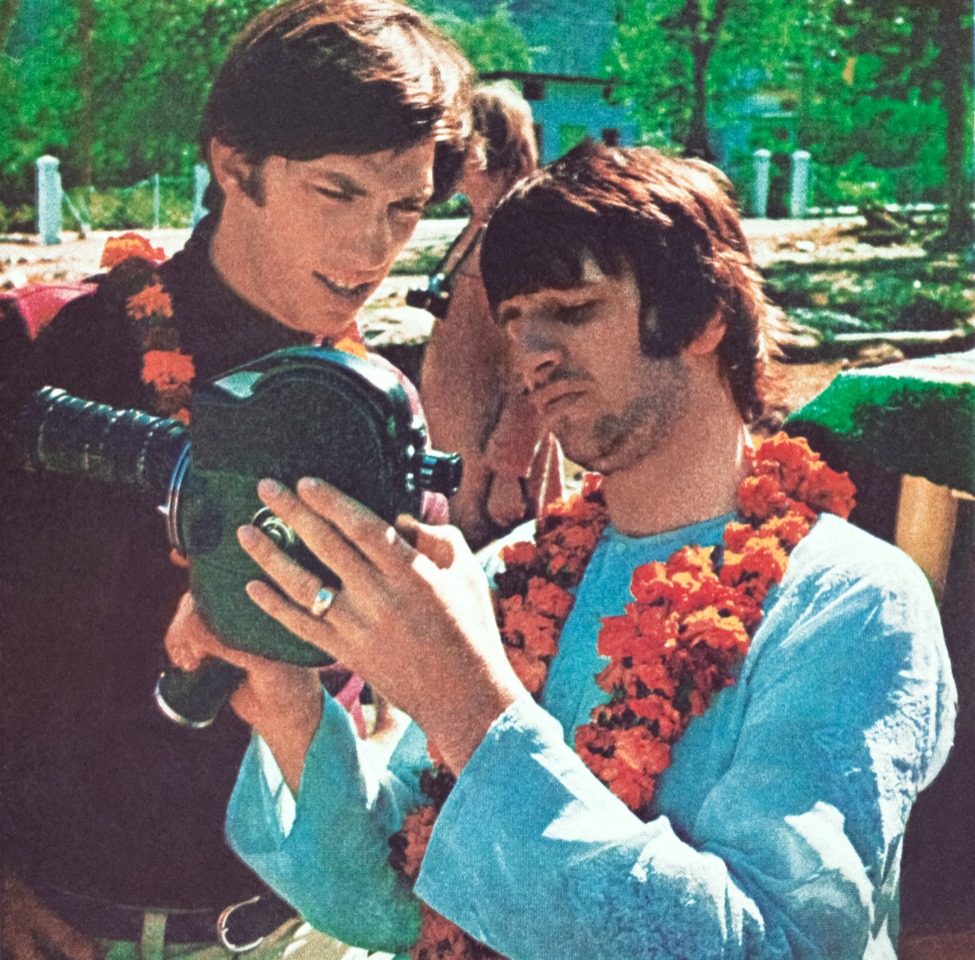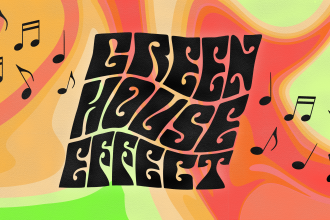From the early days of his career, Canadian film and television director and producer Paul Saltzman knew that he wanted to add goodness into the world. In an intimate Zoom interview with Saltzman, I was granted a glimpse into this passion. “My life, in terms of activism, was very much my filmmaking,” he said. “I had a real epiphany, after India, the realization that I could make junk food for people’s psyche, or I could make healthy food for people’s psyche. And that as a human being, I didn’t want to make junk food for people’s psyches.”
Paul Saltzman’s career has been tremendously successful. He’s earned over three hundred accreditations and two Emmy awards over the course of his career. With such accolades, the seventy-seven year old has managed to keep love, creativity, and peace at the centre of his career and life. His most recent documentary, Meeting the Beatles in India, chronicles his transformative journey to finding inner peace at the Chaurasi Ashram, where he just so happened to bump into four lads from Liverpool.
This story begins with a heartbroken and lost twenty-three year old Saltzman realizing he didn’t like the person he was becoming. Without a formal direction, the soon-to-be filmmaker turned inwards and spoke to his soul for the first time. Asking his soul where to go and what to do, he followed his inner voice to India, where meditation proved to be the key for finding inner bliss and peace. Saltzman tells me that it was only once he was in India that he discovered that magic and love are unlimited.
Being in university, you have lots of awakenings.
While I highly recommend watching Meeting the Beatles in India, it’s not just because of the insider perspective of hearing “Ob-la-Di, Ob-la-Da” being sung for the first time, or the stories about the spontaneous deep conversations between Saltzman and John Lennon. Instead, I think the film has something to teach us about how to tune in to ourselves and show up for life in the most present-minded of ways.
When I got the chance to chat with Saltzman, our conversation took an unexpected turn. I anticipated we’d talk about the Beatles, his time in Mississippi during the Civil Rights Movement, or his wide portfolio of production in films and television. Instead, we spoke about meditation, how to talk to your soul, and how to find magic in your everyday life.
As I said, Paul had a conversation with his soul for the first time at the age of twenty-three. “Religion was never part of my life,” he told me, “but hearing my soul talk to me for the first time changed me forever. It was an awakening. We have lots of awakenings. Being in university, you have lots of awakenings.” He explained that each time we learn or are exposed to something new, our soul is brought into a new light.
While Saltzman is not a religious man, he does believe in a divine presence but notes that “it is up to us of what we want to make of this journey on earth.” For him, it is these honest conversations with ourselves that are the key to unlocking true happiness.
…meditation is the opposite of struggling.
“Hearing my soul talk to me took me from living only in the outer world, not knowing about my own inner world,to awakening to the kingdom of heaven within us.” At the beginning of Meeting the Beatles in India, Saltzman recalls laying in the grass, listening to “Tomorrow Never Knows,” and wondering what exactly the Beatles meant by “awakening to the kingdom of heaven within us.” Little did he know, by winter 1968 he would be able to ask the Beatles themselves.
Saltzman and the Beatles all landed in the Chaurasi Ashram because they wanted to be deeply connected to their souls. At the Ashram, they practiced transcendental meditation: a form of meditation that is intended to allow one to transcend the outer world to enter into their own inner world, in which one can find truth and peace. As Saltzman explained, “Meditation is the opposite of struggling.”
Saltzman recounted his first experience meditating at the Ashram, “Twice I went somewhere, but I don’t know where that was. Wherever it was, it was to a place of joy and bliss.” Ultimately, it is his experience with meditation that has grounded Saltzman within his own mind. He explains, “We’re taught from the beginning to be productive. To study hard. Teachers say ‘think, just think,’ that is a mistake. They should be teaching us ‘feel, just feel.’”
When I asked Saltzman whether he still practiced meditation, he said, “I carry on the conversation with my soul every day. It might be five seconds here or ten seconds there. I ask a question out loud without thinking ‘what do I do?’ We have to be continually connecting. So, if you ask yourself a question out loud and listen to the answer, you will hear your soul talk to you.”
Much like many of you, I have multiple perspectives constantly battling it out in my head. So I asked Salzman, which one am I supposed to listen to? “We all have a negative and positive voice…We have the negative ego, which is the one that is always self-critical,” elaborated the esteemed filmmaker, “and we can identify it because it always makes us feel bad, but the key to the negative ego is that it always lies. It never tells the truth. The positive ego tells the truth, so if you listen to answers from your higher self, you are hearing your soul speak to you.”
Rather than trying to suppress that stress and move on, I believe we could all benefit from taking a moment to just sit with that feeling.
I asked Saltzman what he considered to be the most common mistake people make when meditating. “It’s a mistake to mix being with doing,” he replied. By this, Saltzman meant that mediation is simply about being with what is—seeing, hearing, and listening to what comes up in the mind. It’s about looking directly at your thoughts and spending time with them without reacting. He tells me this is how we can find our inner truth.
I think meditation and, moreover, true honesty is something we can all benefit from, especially right now. Heightened by the additional factors of COVID-19, the usual academic and personal stresses feel more intense than ever. Rather than trying to suppress that stress and move on, I believe we could all benefit from taking a moment to just sit with that feeling. If we are always trying to do something and be productive, we are manipulating what life is supposed to be.
The way that Saltzman spoke about his time with the Beatles is emblematic of this sense of present being: not worrying about the past, and not carrying everything into the future either. I asked the filmmaker about his friendship and deep bond with the Beatles during his stay on the Ashram. Did he carry on his friendship with the rock stars?
“Life is full of magic,” he told me. “One day I looked up magic in the Oxford Dictionary… it said, ‘magic is that which is real but, as yet, we do not understand.’ So, meeting the Beatles and spending time with them was a magical experience. It was a magical experience. There was no thought in my mind of staying in touch, it was perfect the way it was. There was no desire for friendship. The time I spent with them was magnificent…I didn’t need to recreate it.”
I tried again, hoping he’d tell me he wished he could recreate the spectacular, once-in-a-lifetime moments he experienced. He was part of an incredible moment in history that not only changed the Beatles but music and sound forever. I insisted, asking again if when he heard them singing ‘Ob La Di’ in India he knew he was witnessing history.
But maybe these small, seemingly insignificant moments of looking inwards are also deeply significant at times.
Ever-humble, Saltzman replied, “It wasn’t a thought process. I didn’t think any of that. I was just in the moment, in the flow and in the music and when I heard [the song] again I just thought ‘oh, that’s beautiful.’ I didn’t even think about myself. I just loved the music. I was present for something happening that was new. And those were magic moments.”
It is this sense of radical presentism that I admire most about Saltzman. It’s also what I think we can all learn from him. There will always be moments that are unexpected and difficult. But maybe these small, seemingly insignificant moments of looking inwards are also deeply significant at times.
Worrying that I may sound too optimistic, I do acknowledge that there are things outside of our control, especially during a pandemic. That being said, when these moments of uncertainty come to a boil, perhaps we just need to pause. Things are difficult right now, I know. We’ve heard the word “unprecedented” more times this year than we have in our lifetime. It’s been a time of devastation and hardship, but it has simultaneously felt like a beginning of something new.
In talking to Paul, I realized that we have one constant: ourselves. In choosing to listen to what we do not yet understand, we can find our own inner magic. We can find peace, joy, bliss, and all those things that the Beatles tell us exist. Perhaps that is the truth of it all: we just have to listen to ourselves.
Maybe we have to just be.
*
Meeting the Beatles in India is available for streaming within Canada on hotdocs.ca or internationally on gathr.com.






I love the efforts you have put in this, appreciate it for all the great articles. Elianora Barnett Pradeep